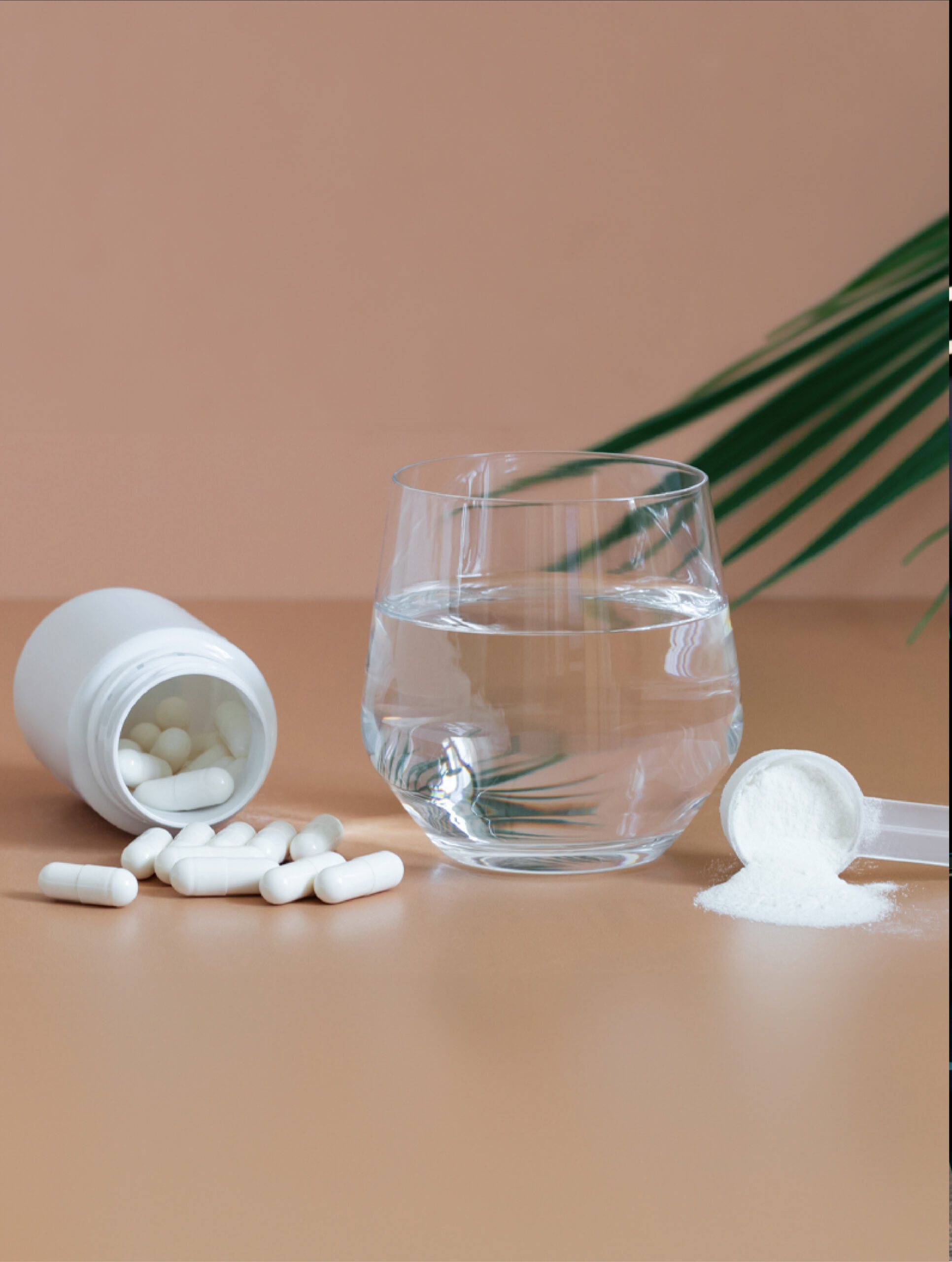Do I need to be taking a collagen supplement?

A quick scroll is all it takes to find glossy-haired celebrities with flawless skin raving about the benefits of collagen supplements. Millions of women seem to be buying them – but should you? A-list endorsements are all good and well, but let’s see what science has to say.
Collagen and your skin
Collagen is the most abundant protein in our bodies. It’s known as the “stretchy stuff” or the “glue” that holds us together as it’s responsible for maintaining our skin’s youthful elasticity and even its hydration. The less collagen we have, the less likely our skin can hold onto moisture. As we age, our natural collagen production decreases, leading to the formation of wrinkles and sagging skin.
The theory behind collagen supplements is that if we replenish our slowly diminishing collagen reserves, we can turn back the clock on our skin’s ageing process. The thing is, any doctor will tell you it doesn’t quite work like that. As it’s a protein, when we ingest collagen, our stomach digests it, breaking it down into amino acids, the same way it would if you had to eat a delicious steak.
While there is some small-scale evidence that suggests certain chains of amino acids can make it into our bloodstream, the idea that they’ll go exactly where you want them to – like your crow’s feed, for example – is highly unlikely. Your body is going to use them where they’re most needed, like your major organs. Again, you don’t need to take a collagen supplement to enjoy this particular benefit. Eating any kind of protein will do the trick. The same rationale applies to anyone wanting to take collagen supplements to improve their hair. Science is currently skeptical that it would work, but they do know that any “benefit” could also be gleaned by eating any kind of protein.
Collagen and your muscles
If studies regarding collagen supplements and your skin are thin on the ground, they’re even scarcer when it comes to collagen supplements for fitness. One, for example, suggested that taking a collagen supplement might lessen joint pain, but it was only performed on less than one hundred young men. It’s also important to remember that nearly all these collagen supplement studies are paid for by the companies that create them, and in most cases, the supplement contains other ingredients – so it’s hard to find one where you’d know for sure that it was the collagen itself doing the work and not the added vitamins and minerals they’ve thrown into the mix.
What’s more interesting, however, is that, once again, all roads lead back to protein. If you really wanted to reap the rewards of those amino acids – the benefit of taking a collagen supplement – you could simply eat more protein or take a protein supplement. This is protein supplements, or more simply, a balanced diet where you eat an adequate amount of protein, is still the best route for any fitness enthusiast wanting to take care of their joints as well as build more lean muscle.
The bottom line
If you’d still like to add a collagen supplement to your diet, by all means, try it. Just keep in mind that doctors and scientists would like to see more evidence before they feel comfortable endorsing it. In the meantime, you can support your body’s natural collagen production by indulging in the delicious protein-packed menu at Protein House. Everything’s delicious and we’ve highlighted a few of our favourite items here so you can dine to your health – as well as healthy, glowing skin!
